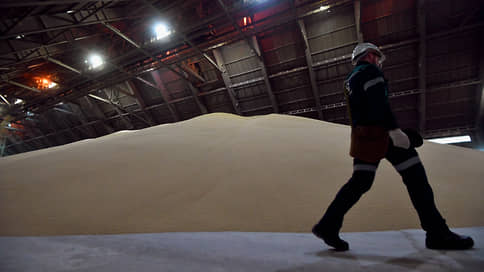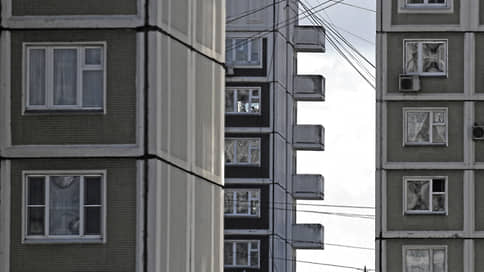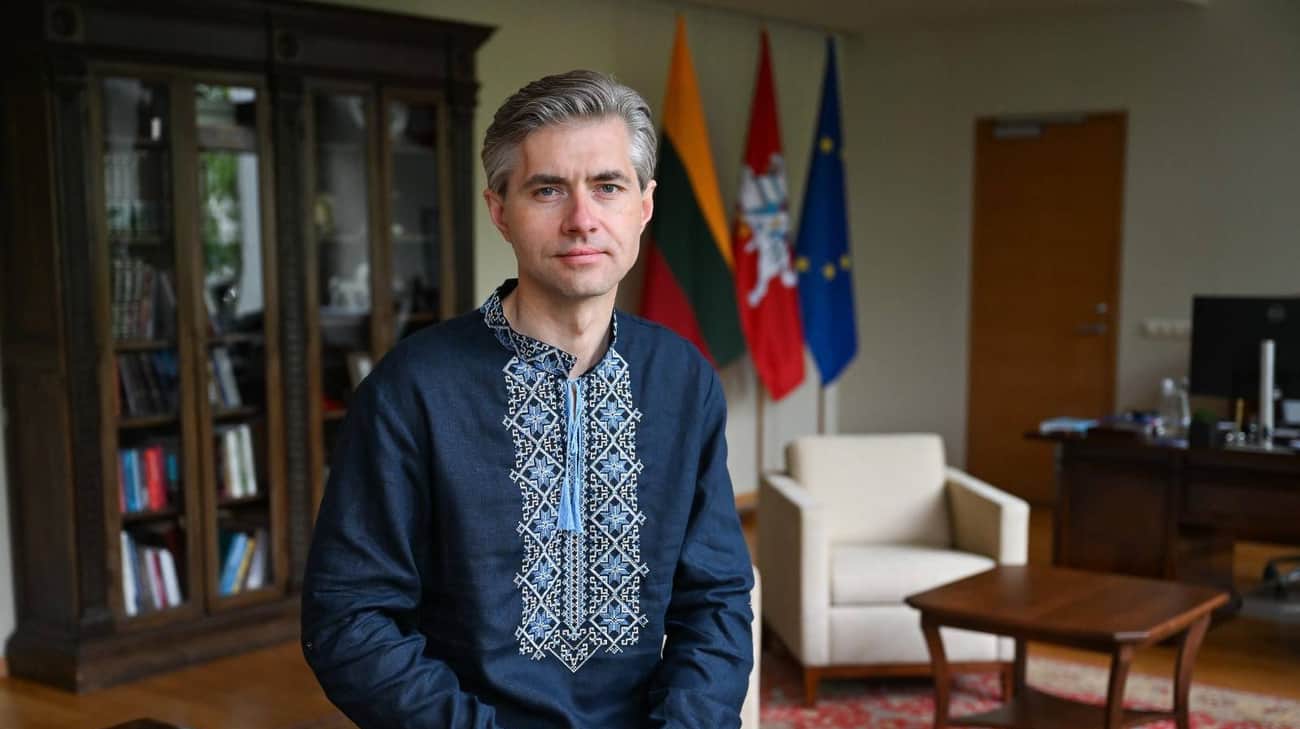How the EU and the UK expanded sanctions against Russia

The new sanctions of the EU and the UK against Russia were largely scaling the previously adopted restrictions. So, from 189 tankers, mainly engaged in the transportation of oil and oil products, about 50 were already under US sanctions. Duplication of steel and sanctions against Surgutneftegaz, registrars and depositories. At the same time, for the first time, fish -industrial companies that were suspected of limiting for fishing vessels were suspected for restrictions.
The EU and the UK have expanded sanctions against Russia. The new round, including the coordinated 17th package, became the largest since 2022, the Supreme EU EU for foreign affairs and security policy Kai Callas said on May 20. As follows from the press release of the EU Council, first of all, restrictions are aimed at the Russian energy sector. So, the EU imposed sanctions against Surgutneftegaz, which in January 2025 was included in the SDN List. The restrictions were also affected by 189 vessels engaged in the transportation of oil and oil products, and the VSK house, which, according to the EU, insures oil tankers.
Energy pressure
With the adoption of the latest sanctions, the total number of tankers, which the EU restrictions apply, has reached 342 units. At the same time, according to Kommersant, out of 189 new oil tankers, about 50 were already under US sanctions.
The list also included three LNG-tankers from the North series, which Novatek in recent months began to attract a flight-border near Kildin-North Moon, North Ocean and North Light for transshipment. All of them were built on the South Korean shipyard Hanwha Ocean last year. Board-in-border transshipment in Russian waters is intensively used by Novatek after a ban on transshipment in European ports for supplies to third countries.
Among the EU, the Volga Shipping Company, Eiger Shipping DMCC, MoonLight Shipmanagement from the UAE, Turkish Cape SHIP Management InC. Cape Gemi Isletmeciligi AS, as well as Hong Kong Prominent Shipmanagement Ltd.
According to FT, Eiger Shipping DMCC belongs to Litasco Middle East DMCC, the structure of the Swiss trader Lukoil Litasco. The latter has not yet fallen under Western sanctions. Bloomberg reported that the EU considered the possibility of inclusion in the 17th package of sanctions and Litasco Middle East, but the company was not included in the final list. Great Britain imposed sanctions against Rhodania Shipping SA, which, according to the NorthData service, owns Litasco. In Lukoil, a comment was not provided.
The expert at the Financial University under the Government of the Russian Federation Igor Yushkov believes that the sanctions imposed by the EU will not have a significant impact on the work of the fleet, since restrictions are exclusively regional and are mandatory only for European companies. The expert recalls that since December 2022, the vessels violating the price ceiling of $ 60 per barrel cannot insure in the EU and do not use European infrastructure. Such tankers switched to service outside Europe and work with Russian and Asian insurers, he points out. In this regard, notes Mr. Yushkov, the 17th package does not contain fundamentally new restrictions and fixes more established practice.
Senior BCS analyst Kirill Bakhtin also believes that the new package of sanctions does not pose a serious threat to the Russian oil sector and does not differ from previous restrictions introduced after 2022. According to him, the market can respond with a temporary expansion of the discount of Russian oil to Brent – a maximum of a few dollars per barrel. But, he says, for three to four months this gap is expected to begin to gradually decrease in the absence of new restrictions. In terms of production and export volumes, the analyst does not predict negative consequences. Mr. Bakhtin says that about 10 thousand tankers for rent are available on the global market, which makes restrictions relatively soft and unable to cause significant malfunctions in logistics.
Igor Yushkov adds that the actions of the EU can be considered as a preparatory stage to the most tough measures. In recent months, European countries have tested Russia’s reaction to attempts to detain tankers in international waters, including in the Baltic Sea, he points out. And the sanctions status of the vessel, according to him, can become a convenient formal basis for blocking the passage through the Danish straits and, as a result, restrictions on oil export along the Baltic route. According to Kirill Bakhtin, the Baltic route plays a key role in Russian export of oil and oil products – this direction accounts for about 35% of the supply.
Networks for fishermen
On May 20, two fishing companies fell under the EU sanctions – Norebo holding Vitaly Orlov and Murman Sifud. These are the first direct sanctions against market participants, says Kommersant’s interlocutor from the industry. The motive for the introduction of restrictions was also the motion of the vessels of the vessels that the European regulator considered atypical for main activities.
So, the Norebo vessels, according to the EU, are equipped with technologies used for espionage in the North and Baltic Seas. The Ship-5 vessel from the Murman Sofud fleet was present in close proximity to the critically important objects of Norwegian infrastructure and military facilities, the text of the decision said.
In Norebo and Murman Sofud, Kommersant did not respond promptly. Earlier, Norebo stated that not a single holding company was involved in the “espionage” in the interests of a state, calling the purpose of these “false accusations” the spread of political rumors. The holding emphasized that its activity is related to the production of food fish products in accordance with the principles of sustainable development and the legislation of countries.
The fall under the sanctions involves a ban on the passage in the waters of the EU, the repair of ships and the unloading of fish in the ports. In the future, these measures can significantly complicate export companies.
The EU market for Russian fish industry is included in five main supplies, says Kommersant’s source. According to Eurostat, in 2024, the export of fish and seafood from the Russian Federation to the EU amounted to 180 thousand tons, decreasing by 10% of the year by the year. In money, the indicator sank by 20%, up to € 700 million.
The President of the All -Russian Association of Fisheries (Warpe), German Zverev calls the predictable intensification of sanctioned pressure from the EU. “The arguments of the European business about the destructive consequences of anti -Russian sanctions were not heard for fish processing,” he says. In the forecast of fish exports for 2030, Warpe oriented the business to turn supplies to friendly countries. Due to the systematic reorientation of the supply of the EU in Russian fish export, it will decrease from 14.9% in 2023 to 6.5% in 2030, and the share of BRICS and the global south will increase, the expert adds.
Financial obstacles
Britain on May 20 imposed sanctions against dozens of depositories and registrars, in particular Surgutinvestneft, VTB of the Registrar, VTB of a specialized depository, R.O.S.T., the infinity special desitarium. US sanctions are already operating against them. The list also included the St. Petersburg currency exchange and the deposit insurance agency (DIA). The justification indicates “receiving benefits from the Russian government or providing it with support by doing business in the field of financial services”. The DIA stated that the sanctions imposed do not affect its activities. The senior partner of PEN & Paper, Anton believes that British sanctions against the DIA can adversely affect the possibilities of returning the assets of bankrupt banks, since access to English justice will be limited, and this will reduce revenues to the competitive mass and the amount of payments to depositors.
In addition to participating in the insurance of oil tankers, the EU substantiated sanctions against the VSK with the provision of services to the Russian military, security services, as well as insurance of the Ministry of Defense aircraft.
The VSK told Kommersant that they did not expect a significant impact on operational activities. “The business is completely localized and independent of the EU infrastructure. All insurance reserves are placed in assets in the territory of the Russian Federation, and reinsurance protection is fully provided with RNPK, ”the company says.
According to Anna Barabash, the general director of the Enterprise Legal Solutions, duplicate US sanctions, the UK and the EU create a regulatory framework that will limit the activities of Russian companies, including depositories, even if the US authorities decide to cancel the sanction. Also, additional problems will arise when trying to defrost the funds by the clients of these persons, the partner of the EMPP Mergen Doreev lawyer, the lawyer bureau. So, if earlier the client for unlocking was enough to solve the American OFAC, now it will also require appeals to the British regulator, he said.
Take in number
Mergen Doreev notes that the 17th package of EU sanctions as a whole is characterized by an emphasis on the number of restrictions introduced. For example, under the sanctions of the EU, the CEO of KAMAZ Sergey Kogogin fell, who, as the company was reminded, is already under the sanctions of the USA, Canada, Australia, Japan, New Zealand, Poland and Ukraine. “The additional personal sanctions of the EU regarding the general director will not affect the activities of the company,” Kamaz said. In addition, at the EU sanctions was saved by the gold mining company Atlas Mining, which owns former assets of Petropavlovsk, redeemed by the UMMC. The latter is already under sanctions. The EU also included in the list the main radio frequency center (FSUE GRChz) and Anatoly Abramov, director of the GCRC branch in the North-Western Federal District subordinate to Roskomnadzor.
The explanation of the list says that the GCRCH is one of the main organizations that contributes to decision -making on the use and supervision of the radio frequency sector.
“Recently, the GPS signal malfunctions in several European countries were associated with the actions of the electronic struggle from Kaliningrad, including the jamming and replacement of the GPS signals, primarily the Baltic countries affected the countries. These actions violated the work of civil aviation, ”it said there.
Advisor to the practice of compliance and sanctions law BGP Litigation Maria Udodova notes the intensification of pressure on foreign persons (including from the PRC, the UAE). Moreover, according to her, against companies from the friendly Russian Federations, countries began to actively impose blocking sanctions, while earlier sectoral restrictions were mainly introduced in relation to foreigners and included them in the list of enterprises related to the Russian military -industrial complex.
Also, Mr. Doraev continues, the interpretation of “destabilizing activity” has expanded, citing a sanction against “Norebo” and “Murman Sifud” as an example. According to the lawyer, this allows us to talk about the risk of the spread of such sanctions on any shipowners whose vessels, for example, use the Baltic Sea. In addition, more and more often the cause of the EU sanctions is the involvement of persons in expanding Russian influence on the African continent, adds Mergen Doreaev.








